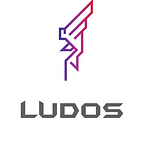Back to Blockchain Basics
As we dive headfirst into 2019, it’s a good time to review the basics of blockchain, how the architecture differs from a centralized platform and how the technology applied can be transformational.
What is blockchain?
Sometimes known as distributed ledger technology, blockchain is a point-to-point distributed network, where information is stored in a decentralized manner and by nature, permissionless, immutable and secure. What underpins the public blockchain is a distributed peer-to-peer (P2P) network, which has a vital feature and differentiator: each network node is equal, no node supervises or has control over other nodes.
A typical P2P network also distributes the resources within the nodes — such as processing power and energy — and can access information in other nodes without going through an intermediary. This means resources, information, storage, and services they provide are fairly or equally distributed.
What other characteristics define blockchain technology?
Decentralization is only one — but crucial — aspect of blockchain technology. Given its decentralized nature, it is possible to avoid bottlenecks since there aren’t intermediates that prevent permission nor a centralized server that can suffer DDOS attacks.
Scalability: In P2P networks, as the demand increases, resources and service capabilities of the whole system must expand simultaneously. In theory, its scalability is almost infinite. For example, in a file download via FTP, as the number of downloads increases, the slower the access gets, due to congestion. However, the opposite is true for P2P networks. The more users the file reaches, the easier it is to share the file since the information exists in many nodes.
Price-performance leadership: Performance advantages are an important reason for why P2P is preferred. With the development of hardware technology, the computing and storage capabilities of personal computers and network bandwidth performance are growing rapidly, sometimes doubling or even trebling within a matter of two years. The P2P architecture can effectively utilize the multitude of common nodes to distribute computer tasks or storage data to all nodes. This takes advantage of idle computing power or storage space needed for high-performance computing and mass storage.
Robustness: The P2P architecture is inherently resistant to attack. Since services are scattered between nodes, the destruction of some nodes has little to no effect on other parts. P2P networks generally adjust automatically when some nodes fail, maintaining connectivity to other nodes. P2P networks are usually built in a self-organizing manner and allow nodes to join and leave freely.
Privacy: Since the transmission of information is dispersed among the nodes without going through a centralized link, the chance for private information leakage is greatly reduced. In addition, at present, the main way to solve the Internet privacy problem is to relay and forward, so that communication is hidden in a large number of network entities. In some traditional encrypted communication systems, the implementation of this mechanism relies on some relay server nodes; but in P2P, all participants can provide the function of relay and forward, which greatly improves the flexibility and reliability of anonymous communication, and can provide better privacy protection.
Load balancing: In the P2P network environment, because each node is both a server and a client, the requirement for server computing power and storage capacity for client-server structure is greatly reduced. As a result, the load balance of the whole network is better realized because the resources are distributed among multiple nodes.
About Ludos Protocol
Ludos Protocol is a purpose-built blockchain infrastructure project for the gaming community. As only the third blockchain project to be backed by Japanese investment giant Softbank, Ludos addresses numerous shortcomings in the existing gaming landscape. Its main chain + multi-sidechain architecture allows games to run entirely on their own blockchain, preventing scalability issues that have plagued previous blockchain-based games. Additionally, the Protocol seeks to create a gamer-friendly ecosystem whereby game developers and gamers can come together to easily crowdfund and build on the platform. The use of non-fungible tokens (NFT’s) within the ecosystem will allow gamers to swap assets in one game for assets in another. Finally, through their partnership with FullPay Japan, Ludos will give gamers the chance to use LUD tokens that are earned in-game to shop and buy at a range of retail stores in Japan and later the world.
Ludos Protocol Links
Telegram Channel: https://t.me/LudosProtocol
Telegram Announcement Channel: https://t.me/LudosAnnouncements
Website: https://www.ludos.one/
Facebook: https://www.facebook.com/LudosProtocolOfficial/
Twitter: https://twitter.com/LudosProtocol
Reddit: https://www.reddit.com/r/LudosProtocol/
BitcoinTalk thread: https://bitcointalk.org/index.php?topic=5064140
